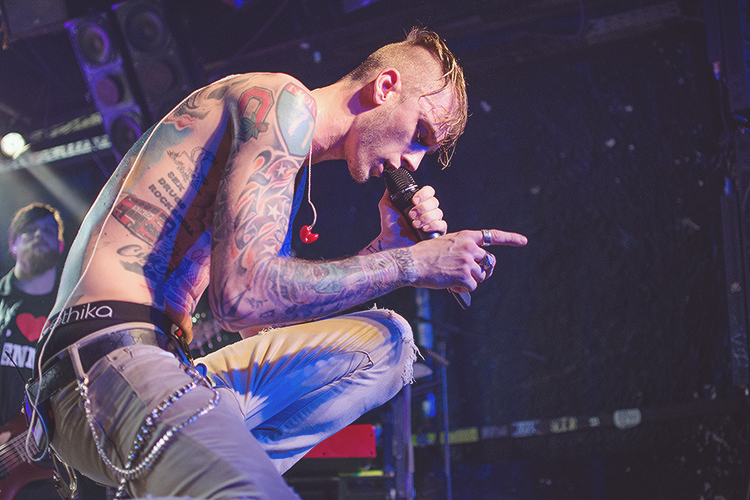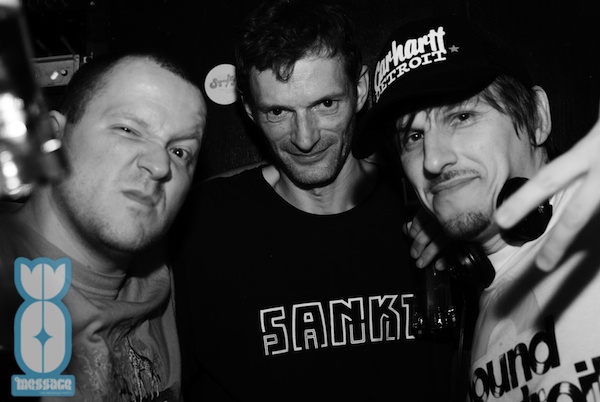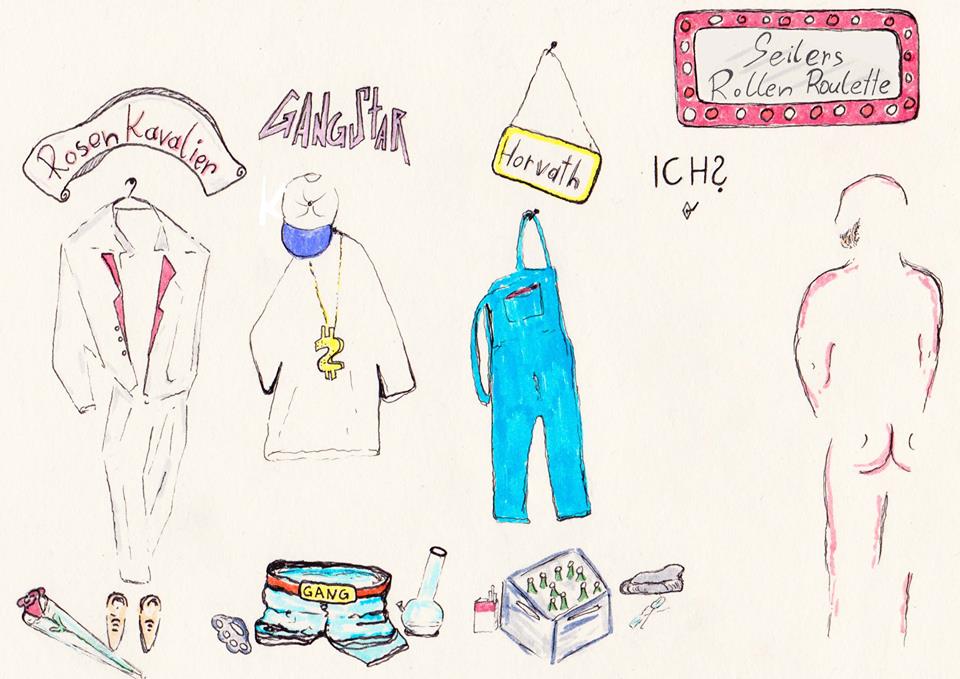Gilles Peterson is a DJ, label owner, radio pirate and an Arsenal fan. We spoke about pirate radio and his impact on club culture, how he got his first show and why he would never support Bayern Munich.
Interview: Alexander Gotter
Fotos: Daniel Shaked
TM: As a teenager you had a pirate radio station?
Gilles Peterson: At my mom and dad’s house I set up a pirate station in the garden shed, that was how I started doing radio, I was 15. I was lose school doing my A-levels, in fact I failed all my exams at the time. Because it all took over a little bit. From doing pirate radio, I bought a transmitter and I used to record shows in my shed and then my dad would help drive to a high point in London and then broadcast the cassette for one or two hours. Sometimes people would call a phone box, we got one or two calls and I was excited. After a little while one of the other pirate stations in London which were quite well known, they called Radio Invicta, they got busted and lost their transmitter. They heard that this young boy had a transmitter and contacted me and they asked me if they could borrow it. And I said: as long as you give me a show. That’s how I got on to Radio Invicta. And from then on I grew into lots of different radio stations. I was on Horizon Radio, which was the biggest station then, and Solar Radio and then I got a show on Radio London on the BBC for a little while. And then I set up my own pirate station called K-Jazz, which ended up being busted not by the government but by another pirate station, they took all our equipment. There were gangs, guns and firing and we thought: this is getting too dangerous. Because you could actually make money out of pirate radio, all the kind of gangsters starting getting involved. So that’s when I got out of pirate radio. Luckily the laws changed and I was asked to become a director of the first station which got a license called Jazz FM. I was with them for two years and then during the first Gulf War I told everyone to go on a peace march and I got fired for that because I was making a political statement. All the main newspapers wrote „convict him“ and I was devastated. But from a different point of view it was quite good for me because it created a kind of rebellious vibe around me. Then I joined Kiss FM, a dance station, and then I went to BBC Radio 1. Now I’m on BBC Radio 6.
How did you technically do it?
I had a Sytronic mixer, it had a doubledeck cassette integrated and you could record an hour. I did an hour and my next door neighbour recorded an hour as well. He was like more indie/punk, I was the soul boy. So we did one hour each and did basically go to the place high up, get the transmitter connected to the cassette player, the transmitter to a car battery and the transmitter to an aerial. And that was radio. When I was on Radio Invicta, because I was quite small and I had a car from the age of 17, so from that age I was basically the guy who got up really early in the mornings on sundays and put the aerials up in all the council flats, all the high buildings in London. I had a set of six keys that opened up all the buildings and all the rooftops. That’s how I got learn and understand London, I knew all the buildings in Leyton, Alexandra Palace and Crystal Palace. It was an amazing time because I was getting all this incredible moments, it was very rebellious, a lot of fun!
What did you play at that time?
At that time I was playing Jazzfunk. Groups like Light of the World or Hi Tension and then American funk like Cameo, Fatback Band, Earth, Wind & Fire and a little bit of Jazz, slowly dipping into it, Disco, that was the time. I think it was 1978/1979.
You said you could make money out of pirate radio stations?
Yes, people were making money out of them by selling advertising. I mean pirate radio in the UK had a very big influence on the world because club culture came out of the UK after rave, but rave came out of pirate radio. So all the DJs before 1988, which is when rave happened, would basically all doing pirate radio and it was through the radio that you educate the crowd and the people about the music, because you weren’t getting it on mainstream radio. Of course club culture comes fundamentally from America, but in America it was more of a gay thing, it was never really what it became in Europa. I think pirate radio is very much part of creating what became club culture. Blame it on the pirates.
You said you had the chance of signing Kruder & Dorfmeister?
I tried, I tried to sign them! I’m not sure if they ever really wanted to be signed, it was really weird. I’m very good friends with them. In fact I was doing a gig in Italy and I got given a cassette of the first EP. I didn’t even listen to it, I was like: It’s from Austria, it can’t be good, because in my head I was focused on Anglo-American music. I was like: this is where all the good music is coming from. Until later when I realized oh my god I missed it, and then a few years later I tried to sign them to a major record label. I came to Vienna a few times to hang out with Peter and Richard, but it never happened. But we’re still friends.
You said „DJing pays the mortgage“. Would you stop doing it if the label or radioshows would make more money?
No. I always DJed and I enjoy it. But obviously I’m getting older, I’m getting 50 next year. Being in night clubs in Barcelona at 4 O’clock in the morning doesn’t have the same level of excitement to me if I would’ve done this fifteen years ago. So nowadays, I just like playing places I really like playing at. In the future I think maybe I retire from being a DJ like I am now. I’ll just do things I wanna do. I still do things that I wanna do now, but even more so. Just play four or five clubs, that’s it. Not do festivals and all that stuff, I don’t really enjoy those things as much, apart from my own festival. Playing at Glastonbury or Lovebox or any of these big festivals. It’s a bit like a supermarket: you gotta basically just do your thing, smash it and go.
Nowadys Indie-Labels sell like Major-Labels. Is „indie“ the new „major“?
Maybe. I think good examples are labels like XL Recordings or Domino Records. They’ve become amazingly great big selling independent labels with an independent attitude. They do all the things you would get from a major. They’re just the perfect labels. The Major-labels lost their way a long time ago. Which is why I don’t work with them. I get asked to do stuff with majors quite a lot, because they’re looking for people like myself to be able to kind of reboost it. But the problem is you gonna get caught up in a lot of redtape and politics. I mean they still need to happen, particular in America because they have a lot of power, the Universals in this world. But it’s different in Europe. It’s been really good for the artist as well. Also the self release: why go for a record label when you are an artist these days. The only way they gonna make money out of you they take everything: publishing, touring, merchandise. Very few record labels are making money out of record sales. So from an artist point of view: do it by yourself, that’s what I suggest.
You worked as an A&R at Phonogram but your boss was putting you down…
It was very difficult, it was another time. I came at a time before it was normal for people to have dance labels as subsidiaries to major labels. From my point of view, when you are one of the first people to do something you have to deal with all the things for the first time and people learn from that. The negative side was the fact that we were naive, the positive side was that we were the first to do it. It depends how you like it. But of course you gonna meet people who are very disruptive and who don’t understand because they are coming from another era. From my point of view I was working at Phonogram with stars like Dire Straits, Tears for Fears or Elton John. So when I came along with Roni Size, 4hero or Carl Craig, they were like: „What the fuck, is this dance music?“ It took a lot to convince them. Luckily for me because there was such a great movement for my music around Europe and around the world, we sold more records internationally. That made them to understand.
You retweeted „Turn the fucking news off, people! Listen to some music. Hug somebody. Anything but watch the news!“…
People become obsessed so much, they become perverted by this kind of news and information thing. I liked the instinct tweet of Ursula Rucker, who’s one of the great poets of our generation. She’s like a modern-day Nikki Giovanni or Jayne Cortez, she’s a strong woman in America. I couldn’t really get away with the word fuck, because I’m on the BBC, but I managed it with a retweet.
I heard you’re an Arsenal fan?
Yes!
Hard times, right?
No, we are just fighting against capitalist jugular. I wouldn’t wanna be a Manchester United fan, Manchester City fan or a Chelsea fan. I’d rather support a small team than a team where they just buy everyone. I like the German way of doing it, how they build their team. But at the end of the day if you are in Germany, you still got to fight Bayern Munich, they just can buy everyone. There is no competition, they’re twenty points ahead of everyone in the German league. Its boring! All the new money…I hope they all go bust! I can’t wait for Abramovich to get bored of football. When he’s bored of football no one will be able to pay the wages and then they’re gonna go bust. Manchester City: the same thing. They’re just rich toys for fucking people who just wanna an ego trip. It got nothing to do with the community, It got nothing to do with development. Its like: why be a fascist or why be a socialist. I’m a socialist.
http://www.gillespetersonworldwide.com/
Ähnliche Posts
- "I never think I do a good enough Job" – Interview mit Gilles Peterson
Gilles Peterson war zu Sommerbeginn in Wien, um im Rahmen des Jazzfests einen Gig der…
- The Story of a Long Lost Relative // DJ Werd Interview
DJ Werd ist seit Jahren eine Art "graue Eminenz" im deutschen HipHop-Geschehen. Aufgewachsen in San Jose,…
- Alice Russell Interview
Butterflies are spreading their wings to fly, little birds and plants, everybody is mellow….Your Album…






